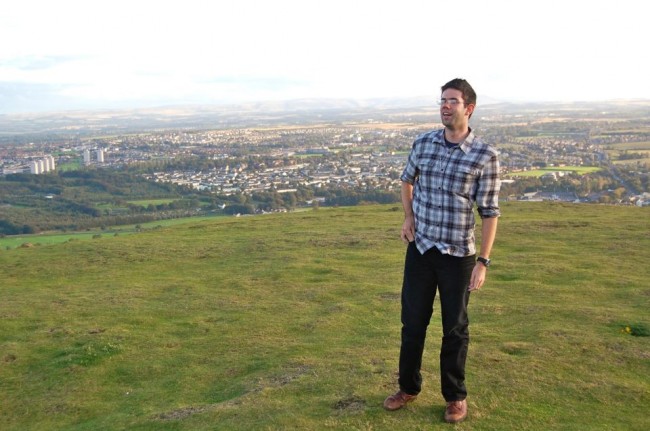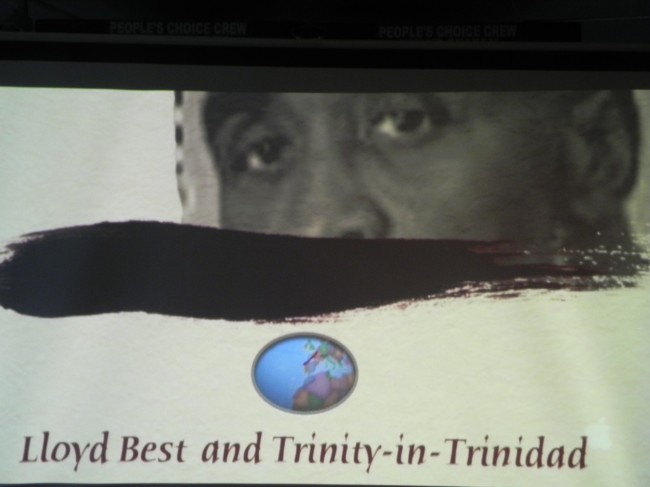Home » Special Opportunities (Page 3)
Category Archives: Special Opportunities
History Professors Attend Historic Conference in Trinidad & Tobago
By: Prof. Markle (History/International Studies)
From March 18th to March 25th, a delegation of Trinity College faculty members traveled to Trinidad and Tobago to attend and participate in the Lloyd Best Institute of the West Indies’ THE COMMON SENSE CONVOIS: RE-AWAKENING THE CARIBBEAN SPIRIT. History professors Dario Euraque and Seth Markle were part of this delegation which also included Milla Riggio (English), Pablo Delano (Studio Arts) and Kifah Hanna (Language and Cultural Studies) as well as undergraduate senior Antonea Ascione (Political Science/English). Since the early 2000s, Trinity College has been partnering and collaborating with the Lloyd Best Institute — named after the renowned Trinidadian economist who died in 2007 — in giving our undergraduate students an incredibly enriching active learning and cultural immersion study away experience.
(more…)
Deadline Approaching:Undergrad Research Grants from CUGS
GROSSMAN RESEARCH GRANTS FOR GLOBAL STUDIES:
“The Kenneth S. Grossman ’78 Global Studies Fund, established in honor of Professor Eugene E. Leach, supports student investigations of global issues that confront humankind in the 21st century. Examples of such issues include human rights, peacekeeping, the preservation of the ecosphere, migrations and diasporas, international health standards, and the consequences of revolutionary advances in information technology and bioengineering. All students undertaking investigations in global issues for a Trinity course or under the supervision of a Trinity faculty member are eligible to apply for grants from the Grossman Fund to attend conferences, visit libraries, conduct fieldwork, or offset other research-related expenses. A faculty committee meets each year in April to evaluate applications, and to determine the amount of grants. The maximum grant in 2011 will be $1,000. Students awarded grants are expected to make use of their funding by September of the following year, or, in the case of seniors, by graduation, and to submit a report to the Center for Urban and Global Studies describing the activities made possible by the grant. All applications should be submitted to Anne Lundberg (anne.lundberg@trincoll.edu) at the Center for Urban and Global Studies by April 9, 2012. The next round of grant competition will be held in April 2013.”
American Historian Abroad

By: Daniel Morgan (Class of 2013)
As an American studying abroad, the two most frequent questions I received over my regrettably brief stint in Edinburgh were, firstly, why I had decided to travel some thirty two hundred miles just to study history; and secondly, why someone born and raised in the States would be so interested in medieval history. Before I could even begin to answer these questions, though, I thought that I should first answer why so many people would think to ask me these same two.
It must have seemed baffling from the point of view of a UK citizen studying the humanities, and perhaps many European humanities students in general, to travel so far just to read the same books or listen to similar lecturers/professors expound upon the same subjects. After all, one of the most wonderful features of the humanities in general, and for me history in particular, is that it is concerned with a unified thought world, in which all philosophical partisanship is leveled out in the pursuit of “the truth,” or “meaning.” So, despite a few stylistic differences here and there, how is being taught history in a foreign country any different than studying history in one’s own country?
In this vein, the second question seems almost legitimate – what interest could an American possibly have in a history that is so far outside the realm of his own cultural and or personal experience? I suppose it must have seemed abundantly strange that the United States, lacking its own medieval past, could produce anyone interested in the medieval period at all. Yet a more important part of this question to some was in tacitly asking how an American could even hope to comprehend the true depth of a history not his own.
(more…)
